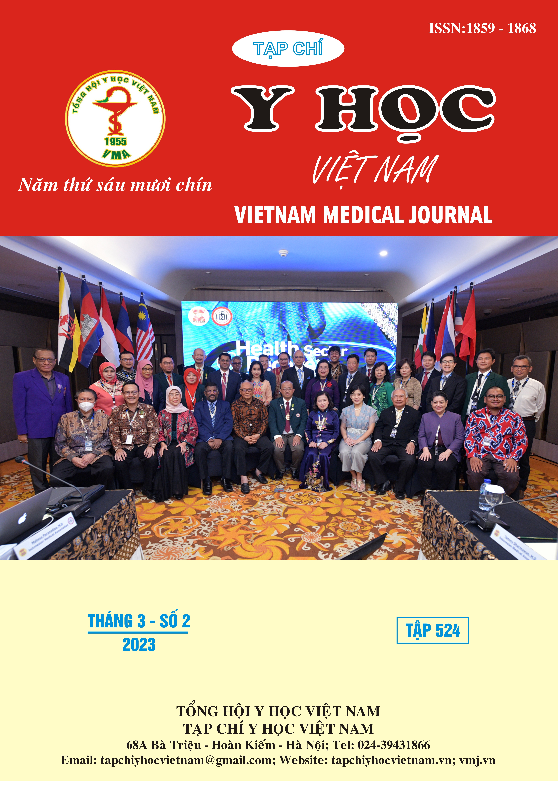KNOWLEDGE ABOUT OVERWEIGHT AND OBESITY OF ADULTS IN INNER AND SUBURBAN HANOI
Main Article Content
Abstract
Research objective: To find out knowledge about overweight and obesity of adults living in inner and suburban Hanoi in 2018. Study design: a cross-sectional descriptive study. Results: Eating a lot of fat, eating a lot of sugar and excess diet had the highest percentage of participants with correct answers, accounting for 93%; 91.1% and 92%. Not enough sleep, stress has a low rate, corresponding to 30.9% and 22.5% of people who answered correctly. Hypercholesterolemia, diabetes are the consequences of being overweight and obese, with 92.3% and 90.9% of people answering correctly. Depression, low self-esteem and cancer have 30.7% and 24.1% correct payers respectively and the difference between urban and suburban areas is statistically significant, p<0.05. Physical activity to prevent overweight and obesity has a low number of correct answers, accounting for 74% (inner city 52.9% and suburban 91.4%; p<0.05). Conclusion: the study shows people's knowledge about the causes, consequences, and measures to prevent overweight and obesity.
Article Details
Keywords
knowledge, overweight, obesity, adults, Hanoi
References
2. Nguyễn Thị Xuyên (2015), "Bệnh béo phì", Hướng dân chẩn đoán và điều trị bệnh nội tiết- chuyển hóa, Nhà xuất bản y học: Hà Nội. tr. 247- 254.
3. Lê Thị Bạch Mai, Lê Thị Hợp và cộng sự (2017), "Thừa cân béo phì ở người trưởng thành Việt Nam: Thực trạng và một số yếu tố nguy cơ", Tạp chí Y học Việt Nam, 460, tr. 57- 63.
4. Bộ y tế và Cục y tế dự phòng (2015), "Điều tra quốc gia yếu tố nguy cơ bệnh không lây nhiễm", 2015.
5. Cao Thị Thu Hương và Lê Danh Tuyên (2017), "Thừa cân- béo phì và các yếu tố xác định hội chứng chuyển hóa trên phụ nữ 25 – 59 tuổi tại hai phường, quận Bắc Từ Liêm, Hà Nội", Tạp chí y học Việt Nam, Tập 453, 2017, 4(1): Tr. 57- 63.
6. Nicolaides N. et al (2015), “Stress, the stress system and the role of glucocorticoids”, Neuroimmunomodulation, 2015, 22(1-2): p. 6-19.
7. Salmon A.B. (2016), “Beyond diabetes: does obesity-induced oxidative stress drive the aging process? ”, Antioxidants (Basel), 2016, 5(3): p. 24.
8. Meldrum D.R. et al (2017), "Obesity pandemic: causes, consequences, and solutions—but do we have the will?", Fertil Steril, 2017, 107(4): p. 833-839.


